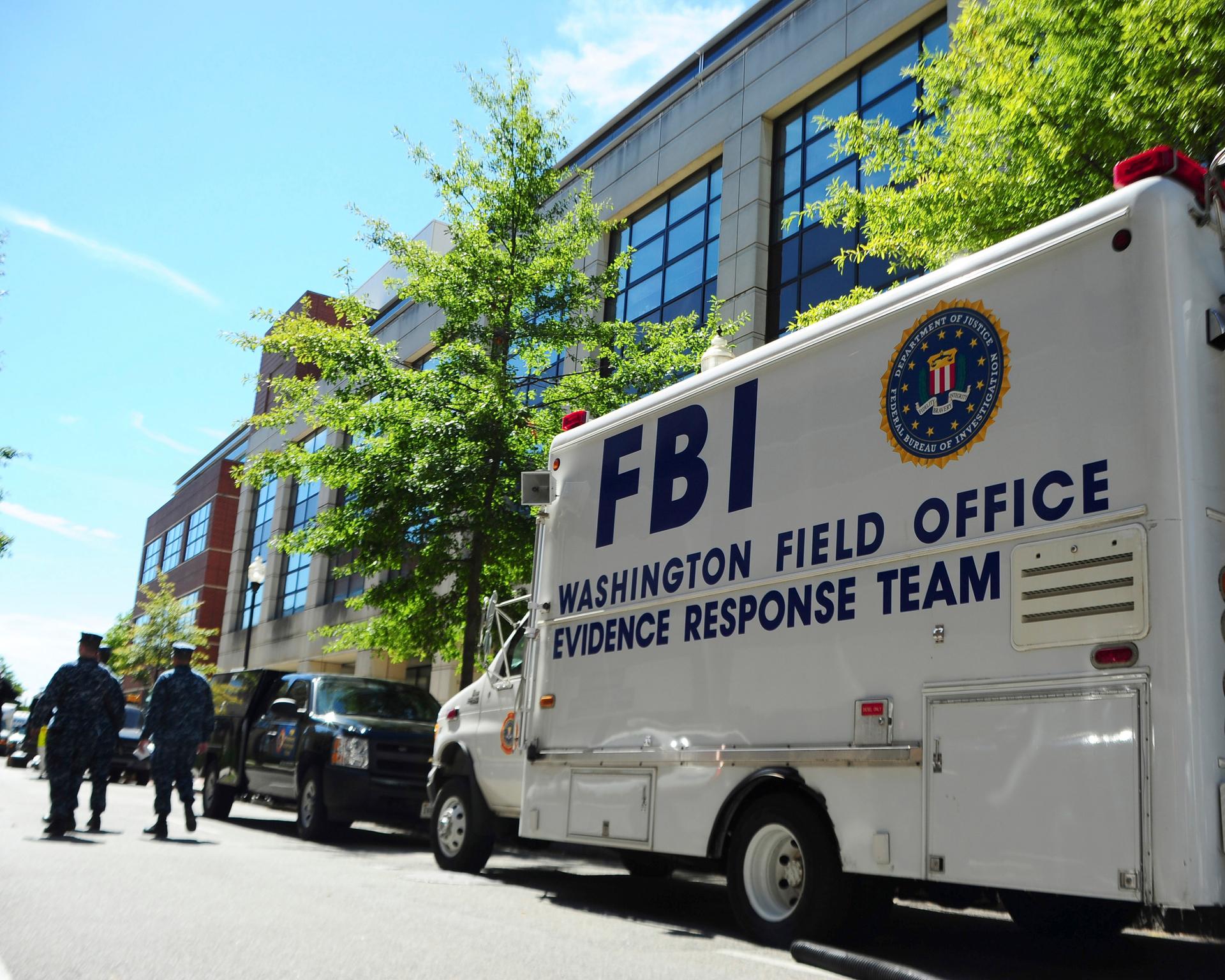A lawsuit claims the US tried to recruit Muslims to spy on their fellow Muslims
An FBI evidence response team works at the Washington Navy Yard in Washington, D.C., September 18, 2013.
A new report suggests the FBI has been coercing Muslims who live in the United States to spy on other Muslims.
Four men filed a lawsuit in a federal court in New York alleging the United States placed (or kept) the men on the no-fly list after they refused to spy on others Muslims in New York, New Jersey and Nebraska.
The no-fly list was created after the 9/11 attacks, and restricts certain individuals from traveling in and to the United States. It is notoriously difficult for an individual to get off the list once they've been placed on it. Professor Ramzi Kassem, who supervises the CLEAR Project at CUNY School of Law, is representing the plaintiffs in this lawsuit.
"Some of our clients were approached and the FBI attempted to recruit them as informants," Kassem says. "Our clients declined for religious and political reasons — those are First Amendment protected reasons. They declined to become informants and exercised their First Amendment rights. In retaliation for exercise of that right, the FBI placed them on the no-fly list."
Kassem says the FBI approached these individuals after they were placed on the no-fly list and expressly said they were added because they didn't, as he puts it, "play nice." Furthermore, the FBI said these individuals could be taken off the list if they agreed to become informants, according to Kassem.
"There's very little that is known about the standards [that] the US government uses to administer the no-fly list," says Kassem. "The little that we do know publicly, one of the standards is for the person to be a known or suspected terrorist. Of course, we have no visibility into how the US government interprets that standard, and then there's the larger question of whether they're even adhering to their own standard."
Kassem says the secrecy shrouding the no-fly list prevents lawyers, journalists and others from verifying the FBI is adhering to its own standards. That secrecy, though, may also prove problematic to this lawsuit. Some have speculated the government will get the case dismissed by aruging it would have to disclose classified information to defend against it.
"We at CLEAR and our colleagues at the Center for Constitutional Rights have often litigated cases where the government comes into court and asserts so called national security interests," Kassem says. "I cannot emphasize enough that this is simply not a national security case. This is a case about fundamental civil rights, our clients' right to speech, association and religion under the First Amendment. It's about our clients' rights to due process of law. the government should not be able to strip them of their freedom to travel without giving them notice an opportunity to be heard."
Kassem says his clients have no criminal records. The US government has not responded to the lawsuit.
This interview first appeared on PRI's The Takeaway, a public media show that invites you to be a part of the American conversation.
